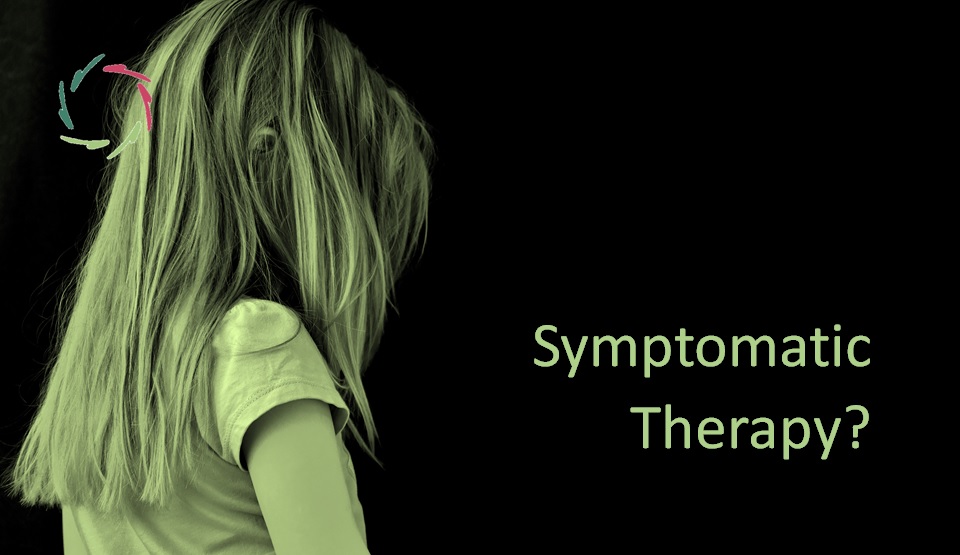Symptomatic Therapy?

If the symptom is a symbol of oneself, and one attacks the symptom, one attacks oneself. That doesn’t seem like the best way.
It’s not always bad to tackle the symptom.
While nature inside you heals itself, it may be OK to have fewer symptoms as long as this doesn’t stand in the way of nature’s healing. This is how most medications work. [see: “Most drugs are sheer symptomatic”]
Even more, temporary relief of symptoms may be needed to get past an acute episode that might lead to negative consequences, even death.
Listening to symptoms
In psycho-somatics, the symptom can frequently be seen as an attempt of communication from the deeper mind-body. In such cases – and there are many – it is better to listen. As such, one can also avoid the need for the symptoms to shout even louder. [see: “Those Who Do Not Want to Listen, Will Get Symptoms”]
Of course, listening to symptoms this way is not always straightforward. That is why AURELIS lends much support.
Merely symptomatic therapy
If the goal of therapy is only to get rid of the symptom as easily and quickly – and cheaply – as possible, one may be asking for troubles.
Nature calls ― you don’t listen ― nature calls harder for you to open yourself. Keeping closed may be more comfortable in the short term, but not therefore in the longer term.
Poetically said:
If the flower bud doesn’t open…
You may find two ‘AURELIS metaphors’ about this in free e-book 2 on this website (also on smartphone).

Unfortunately, much therapy is merely symptomatic.
This includes all circumstances in which one relies exclusively on placebo. [see: “Placebo Based Medicine”] Placebo is one-way communication, an instrument that doesn’t intrinsically respect nature. No invitation for the bud to open ― quite the contrary.
In this, it is different from empathy. [see: “Empathy vs. Placebo”]
Patient consent
It is less evident but much more important that patients should know when their treatment is symptomatic and what this means in-depth, also in the long-term.
Scientific studies in this sense are challenging. In other words, we don’t know much about long-term effects ― but we should. In the long term, symptomatic therapy might be dangerous.
This may be a very inconvenient truth in many ways. It may be a healing one if we act upon it.
[see: “Only Truth Can Truly Cure”]


